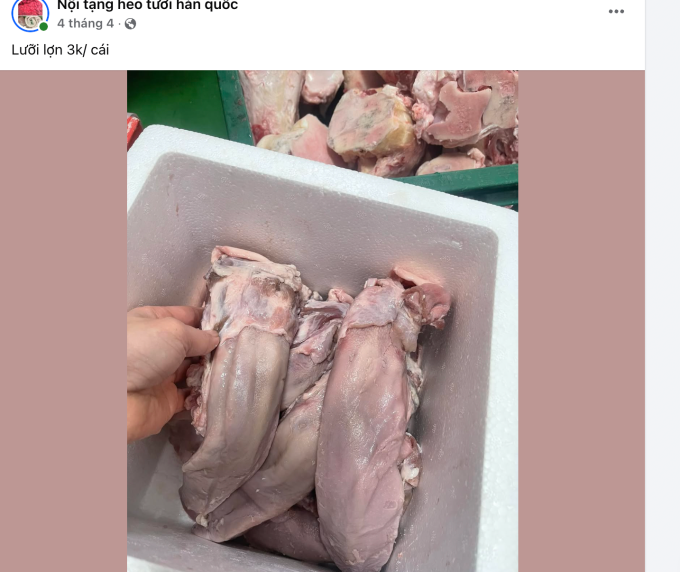
Recently, the intestines of a pipe have suddenly attracted attention on social networks, becoming a topic of discussion for many people. This dish is often found on the menus of restaurants and bars with sky-high prices. However, surveys at many traditional markets show that this type of intestine is almost absent.
In contrast, on online markets, frozen pipe intestines are sold at prices ranging from 100,000 - 150,000 VND/kg. This makes many people question the origin and quality, especially the possibility that the product is cheap imported frozen goods.
Next, many other types of internal organs such as intestines, tripe, fat, tongue, and pig heart are also being sold at "super cheap" prices, from only a few thousand to a few tens of thousands of VND per kilogram. For example, on a website specializing in selling fresh internal organs imported from Korea, a headless pig tongue is only 3,000 VND/piece, a pig nose is 5,000 VND, and a pig tail is 8,000 VND/kg.
In particular, the type of fat used to stuff pig intestines is sold for only 4,000 - 5,000 VND/kg. This type of fat is located in the abdominal cavity, near important internal organs such as the stomach, intestines and liver. According to medical experts, consuming this type of fat can increase the risk of serious health problems.
In addition to pig organs, the frozen food warehouse with 23,000 members also continuously posts a series of cheap frozen chicken and beef products for sale. Whole salted chickens range from 94,000 to 102,000 VND depending on quantity. Chicken wings in the middle have decreased from 86,000 VND/kg to 78,000 VND/kg, while packaged young chicken eggs cost from 70,000 to 62,000 VND/kg. Most of these products are only half the price of domestic products. Young chicken eggs cost only 1/4 of the price of fresh products.
Ms. Pham Thi Minh Anh, owner of a frozen organ business in District 12 ( Ho Chi Minh City), said that the products are usually packaged in 10-12 kg boxes, depending on the type. The goods at her business include both domestic products and imported products from Korea and Russia.
Explaining the reason for selling at such a low price, she said that she was able to enjoy preferential treatment because she imported in large quantities. Furthermore, in many countries, offal is not popular and is even considered waste, so the price is very cheap. Meanwhile, the demand for this item in Vietnam is high.
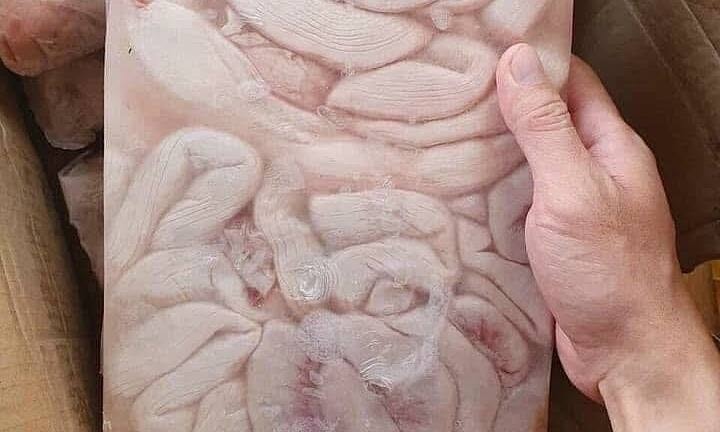
Mr. Thanh, the owner of a meat import shop in Hoc Mon (Ho Chi Minh City), also confirmed that the price of foreign organs is only about 1/3 of domestic products. However, he emphasized that not all frozen products are of poor quality.
At his store, only frozen pork meat and bones are imported, with prices 30-50% lower than domestic products. As for internal organs, he refuses to sell them because they are difficult to preserve and can easily cause safety problems if left for a long time. He suggested that the authorities should strengthen supervision of the import stage, require businesses to be transparent about the origin, expiry date, storage conditions and apply electronic traceability stamps. In particular, he warned that the increasing smuggling situation is causing difficulties for legal businesses.
Faced with the widespread situation of frozen food, Hanoi authorities have just seized more than 7 tons of immature eggs and pig brains without invoices or documents proving their origin.
In just one month, the Economic Police Department of Hanoi City Police handled 9 cases of trading in food of unknown origin and expired products such as pig intestines, intestines, eggs, sausages...
In Thai Nguyen, authorities also simultaneously inspected 3 cold storages and discovered 8 items of unknown origin such as boneless chicken feet, chicken, immature eggs, pork brains, ground crab... with a total value of hundreds of millions of dong.
Previously, in Pig City, Nha Trang and Da Nang, many batches of frozen organs imported without documents were also discovered.
Authorities recommend that consumers should visually inspect products, clearly label them, and only buy at licensed stores.
According to preliminary statistics from the Customs Department, in the first quarter, Vietnam spent 437.2 million USD to import about 214,200 tons of meat and meat products, up 14% in volume and 18% in value over the same period last year.
TB (according to VnExpress)Source: https://baohaiduong.vn/noi-tang-lon-bo-ban-tran-lan-tren-mang-gia-sieu-re-411321.html


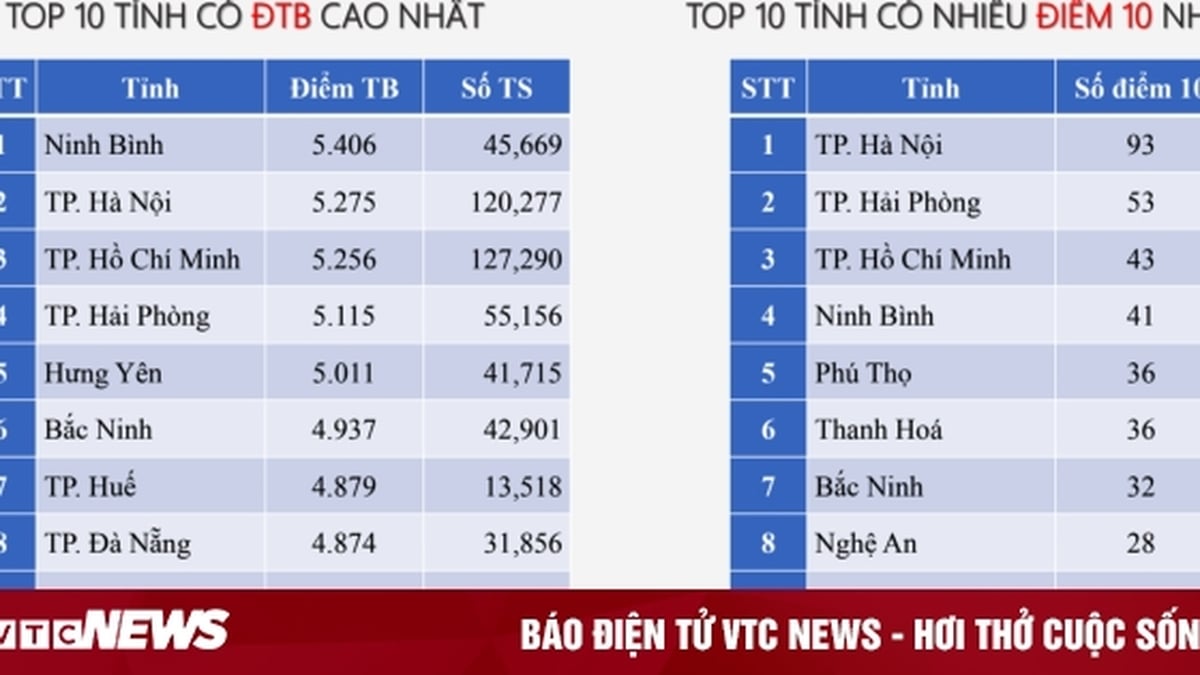




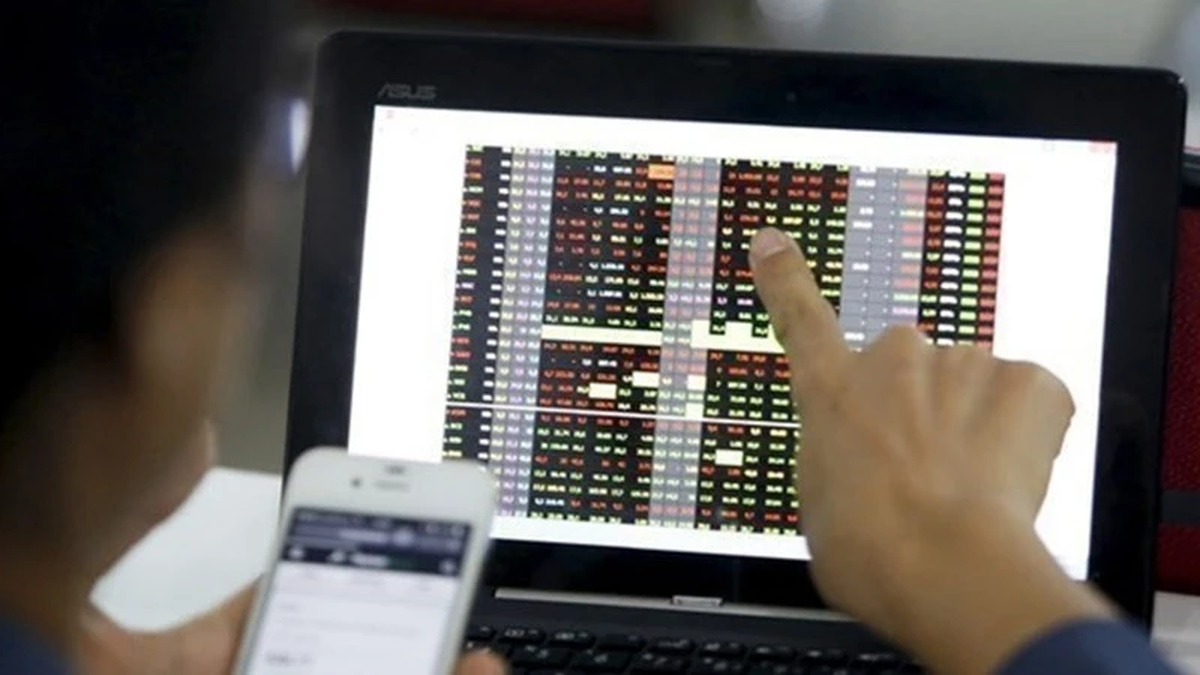























































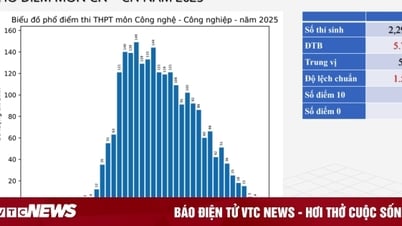





































Comment (0)